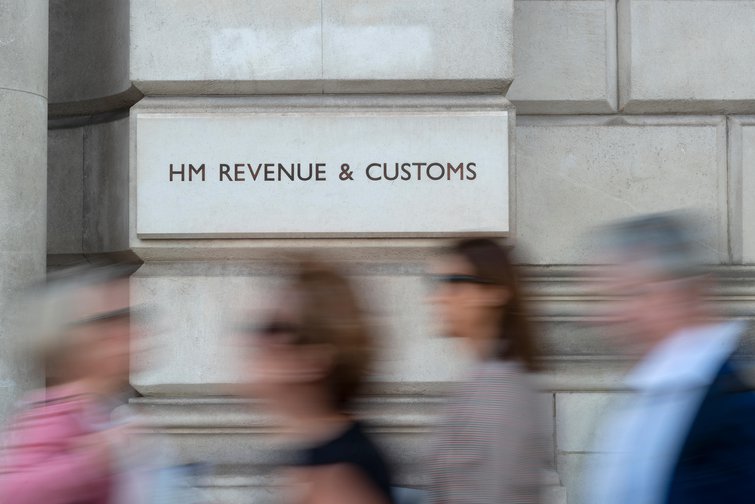No prosecutions for furlough fraud, despite 30,000 allegations
Exclusive: UK authorities accused of sending a ‘green light’ to potential fraudsters by failing to create a strong deterrent

UK authorities have failed to make any prosecutions for furlough fraud, despite receiving tens of thousands of allegations, openDemocracy can reveal.
In March, HM Revenue and Customs (HMRC) said it had opened 7,000 investigations, after being sent more than 28,000 reports of potential fraud. By August that number had topped 30,000.
But it has now confirmed that only 20 of these investigations have led to ongoing criminal enquiries – with just five people arrested to date.
The scheme, which ended last week, saw more than a million businesses handed £70bn in financial support to cover the wages of non-working staff.
But up to £3.9bn of this may have been claimed fraudulently or paid in error, according to provisional estimates by the tax authority. HMRC has said it is “almost certain” that more than half of this amount – nearly £2bn – has gone to organised criminals.
Labour MP Angela Eagle told openDemocracy that the failure to prosecute anyone shows that the “balance of risk and reward for fraud is fatally out of kilter”.
“The potential gains of behaving fraudulently are so large now and the chances of being caught are so infinitesimally small,” said Eagle, who is a member of the Treasury select committee.
The admission that no prosecutions have been made came after a request for details under the Freedom of Information Act.
It follows an investigation last week by openDemocracy and The Times, revealing how a company that won £40m in COVID contracts made its staff work on furlough and threatened to fire anyone who spoke out.
The company, KAU Media Group, admitted that employees were asked to be “reactive” to clients, but said there was no “intention of fraud”, and money had been repaid.
Yesterday, MPs and campaigners called for an official probe into the firm, saying it was a “disgrace”.
HMRC refused to comment on any specific cases, but said it takes all allegations seriously. Speaking about its overall approach to policing the furlough scheme, a spokesperson said that the current lack of prosecutions was due to the time-consuming nature of investigations.
Cases include a suspected £3.4m furlough fraud, which saw two people being arrested in May. But in many cases authorities say it may be difficult to distinguish between criminal activity and honest mistakes.
HMRC has operated on a reduced budget since 2010 after being asked to make 25% cuts when David Cameron was prime minister. Last year, it had 5,000 fewer full-time staff than it had in 2011.
A report by the National Audit Office (NAO) said that HMRC initially did not have enough staff to police the furlough scheme.
Gareth Davies, the head of the NAO, told MPs in April he was “surprised” the tax authority had not used stronger messaging to deter potential fraudsters and demonstrate the likelihood of them being caught.
As a way of making sure that the people that abused the [furlough] system during the pandemic are brought to justice, it is entirely inadequate
HMRC’s long-standing policy is to deal with fraud through civil measures where possible, such as financial penalties. But the head of the TaxWatch campaign group, George Turner, said: “As a way of making sure that the people that abused the system during the pandemic are brought to justice, it is entirely inadequate.
“Any benefits fraud case worth more than £5,000 is referred to criminal prosecutors for review. I don't see what reason there can be for not taking the same approach to furlough fraudsters.”
MPs have also said that, by limiting criminal investigations for fraud to the most serious cases, authorities were “sending a green light” to fraudsters.
HMRC said that a new Taxpayer Protection Taskforce, staffed by 1,260 existing employees and funded by an additional £100m from the Treasury, has now been formed to recover money lost to fraud or error on the schemes.
It added that a recruitment drive would not have helped during the start of the pandemic, because there is an 18-month time-lag between starting recruitment and getting staff fully trained to start work.
Sue Hawley, executive director at Spotlight on Corruption, yesterday called for authorities to “aggressively pursue” companies who made staff work while on furlough.
“HMRC needs to be far more transparent about what steps it is taking in these kinds of cases, and both HMRC and government need to publish full details of all the companies receiving taxpayer support whether through furlough or COVID loans during the pandemic,” she said.
Alison Thewliss, Scottish National Party MP and another member of the Treasury select committee, told openDemocracy: “The exploitation of employees through the furlough scheme is a scandal, which must be taken seriously by the UK government and HMRC. It puts employees in an impossible position, where speaking out about their exploitation could cost them their job.”


No comments:
Post a Comment
Note: only a member of this blog may post a comment.